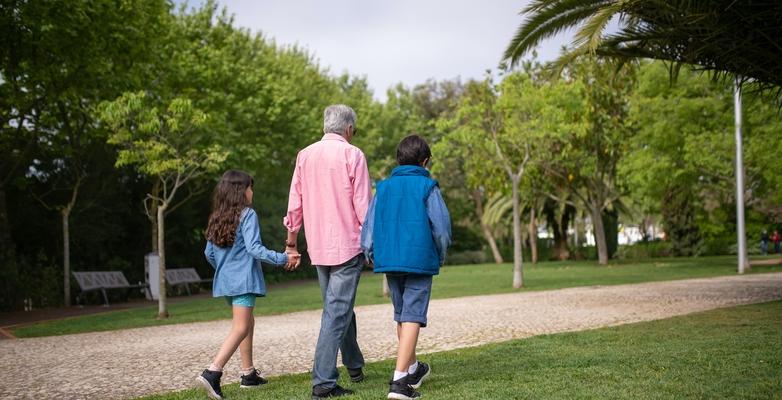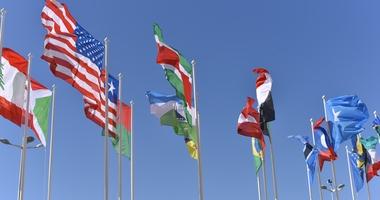
Older Adults are Uniquely Impacted by the Climate Crisis. Here’s Why
As global temperatures rise, older adults are more vulnerable to the dangers of the climate crisis.
Worldwide – and in particular in high-income countries – we have an unprecedentedly large aging population.
By 2030, one in six people will be aged 60 years or older, according to the World Health Organization. This means the population of older adults will increase from 1 billion in 2020 to 1.4 billion. The over-60 population is expected to double by 2050, relative to 2020, to about 2.1 billion.
But did you know that older adults are more vulnerable to the impacts of the climate crisis?
As global temperatures rise, and we strive to build resilient, sustainable, and healthy communities, it’s critical that we understand not only the ways in which older adults are affected by the climate crisis, but the incredible role this group plays in the climate movement.
Here’s a few ways this group is uniquely impacted.
Extreme heat, the climate crisis, and physical health
As our bodies age, we are less able to compensate for and cope with environmental hazards, including extreme heat and air pollution. We’re less able to regulate internal heat and maintain core body temperature, less able to sense heat and to sweat, and less likely to feel thirsty and seek fluids when dehydrated.
In addition to the physiological effects of aging, older adults are also more likely to have limited mobility and chronic health conditions such as cardiovascular and respiratory disease, and type 2 diabetes, which can be exacerbated due to temperature extremes, stress, and limited resources.
Older adults are also more likely to take medications that impact the body’s ability to respond to heat, which puts older adults at a greater risk for heat illnesses and death.
Each year, an estimated 12,000 people die prematurely in the contiguous US from heat-related causes, according a Duke University study.
The toll that extreme heat has on older adults is devastating. Researchers have also found that over 80% of people dying from heat-related illnesses are 60 or older.
In 2022, during the heat wave that scorched Europe, people who were 65 or older accounted for approximately 90% of heat-related deaths. During the Pacific Northwest heat wave in 2021, approximately 1,000 people died – and most of them were older adults. In Multnomah County, Oregon, 72 heat-related deaths occurred that summer. Of those victims, 78% were 60 or older and 71% lived alone.
Extreme weather events and disaster response
In the case of extreme weather events such as hurricanes, wildfires, and floods, older adults are particularly vulnerable and are more likely to “suffer storm and flood-related fatalities.”
Nearly three-quarters of Hurricane Katrina deaths occurred “among older Americans.” From Hurricane Sandy, over half of the deaths came from older adults. Following Hurricane Maria in Puerto Rico in 2017, people 65 and older had the highest mortality risk compared to other age groups.
In response to extreme weather disasters, evacuation and relocation of older adults can have a range of negative impacts on physical, cognitive, and mental health.
One of the major ways that extreme weather disasters impact older adults is by disrupting regular health care and the management of chronic health conditions. This can be especially dangerous for older adults who rely on caretakers, medical equipment, or other forms of support that can be disrupted in a disaster.
“When communities are disrupted, so are the supports for those who live there,” said Sue Anne Bell, assistant professor at the University of Michigan School of Nursing. “The loss of basic infrastructure — such as loss of power or transportation — may cause serious health care interruptions, which can have long-lasting health impacts.”
For example, in one study, Bell and her colleagues found that “people with breast cancer who lived through Hurricane Katrina in 2005 experienced interrupted care and were more likely to die within 10 years than those not exposed to the disaster.”
This also applies to older adults living with cognitive impairments such as Alzheimer’s disease. Older adults with cognitive impairments may experience difficulties “understanding of communications about risk, weather warnings, disaster orders, and offers of assistance.” This population may also be less able to take preventative measures before a disaster, or react to protect themselves.
Temporary shelters – which can be crowded and unfamiliar – may be stressful for older adults and ultimately “can tip the balance for those marginally coping and create cycles of physical and mental health decline.”
Studies also suggest that natural disasters disproportionately impact the mental health of older adults. When compared to younger adults, older adults were 2.11 times more likely to develop post-traumatic stress disorder and 1.73 times more likely to develop adjustment disorder.
Many of these impacts can be mitigated
Many researchers and advocacy groups are developing new ways to prevent and mitigate the impacts of extreme weather disasters and the climate crisis on older adults.
For example, studies have found that older adults are frequently underprepared for disasters, do not have an emergency plan, do not know about the resources available to them, and have not participated in disaster preparedness education programs.
Both preparation and education can play a critical role in mitigating these impacts, and so could more coordination between agencies, community leaders, and providers who support older adults. Frontline professionals like case managers, social workers, and gerontologists also play a critical role in helping older adults prepare for emergencies and respond and recover after a disaster.
Older adults and climate and environmental justice
But the impacts of extreme weather disasters and rising temperatures are not distributed equally. BIPOC older adults and low-income adults are more vulnerable.
Older adults who live on fixed income or who experience poverty may be impacted more by hotter summers and other extreme temperatures because they don’t have or can’t afford air conditioners, or the cost of sustaining heaters and air conditioning.
Additionally, people that live in “substandard housing” may not be able to make necessary repairs or accessibility modifications to their homes, making their homes less likely to withstand extreme weather events and making it harder for this group to evacuate in an emergency.
According to the US Global Climate Change Research Program, BIPOC communities are more vulnerable to the health risks associated with climate change due to a higher likelihood of living in risk-prone areas such as urban heat islands and flood zones, areas with “older or poorly-maintained infrastructure,” an increased burden of air pollution, and higher rates chronic health conditions.
Older adults are an incredible part of the climate movement
Across the globe, older adults are mobilizing to fight for a sustainable future.
Based in Ontario, Seniors for Climate Action Now! is a Canadian organization that aims to mobilize older adults to take climate action.
Most recently, the group made Canadian news for protesting against the Royal Bank of Canada (RBC) for its investments in oil and gas and financing of the Coastal GasLink project, which is being built on unceded Wet'suwet'en territory.
Bill McKibben, a renowned author, journalist, and climate activist, founded Third Act, an organization that is building a “community of Americans over the age of sixty” to mobilize and protect our planet. Among many issues, the group is focused on combating big banks’ role in funding Big Oil, defending our right to vote, and strengthening clean energy policies by influencing Public Utility Commissions (PUCs).
These are just a few examples of the many ways in which older adults are fighting back.
“These elders bring life’s lessons, skills, experience, wisdom, time, and often economic wealth to efforts to collectively mobilize to address the climate crisis,” writes Robin Cooper, co-founder of the Climate Psychiatry Alliance, in an article for the National Council on Aging. “Many are drawn to climate activism by their deep concerns for the world they will leave their grandchildren.”
Take action
From heat waves to hurricanes, the climate crisis is making extreme weather disasters more frequent, intense, and deadly – and it’s hitting our most vulnerable communities the hardest. But it doesn’t have to be this way.
Together, we CAN end the era of fossil fuels, accelerate the just transition to clean energy, and build a truly net-zero future. But it will take every single one of us.
Are you interested in joining our movement for a more just and sustainable world?
Sign up today to start receiving emails from Climate Reality featuring the latest news and actions you can take to fight the climate crisis.




